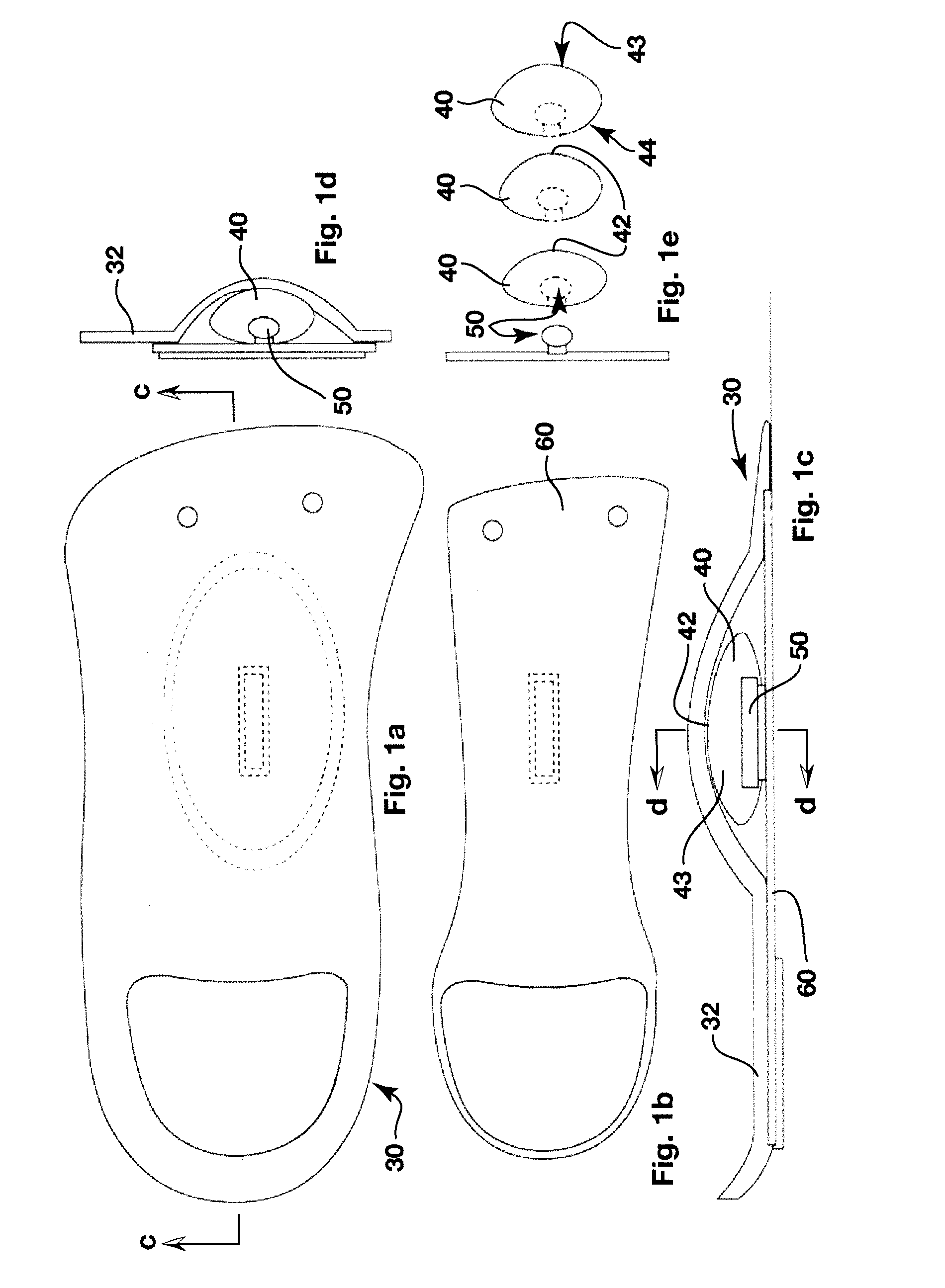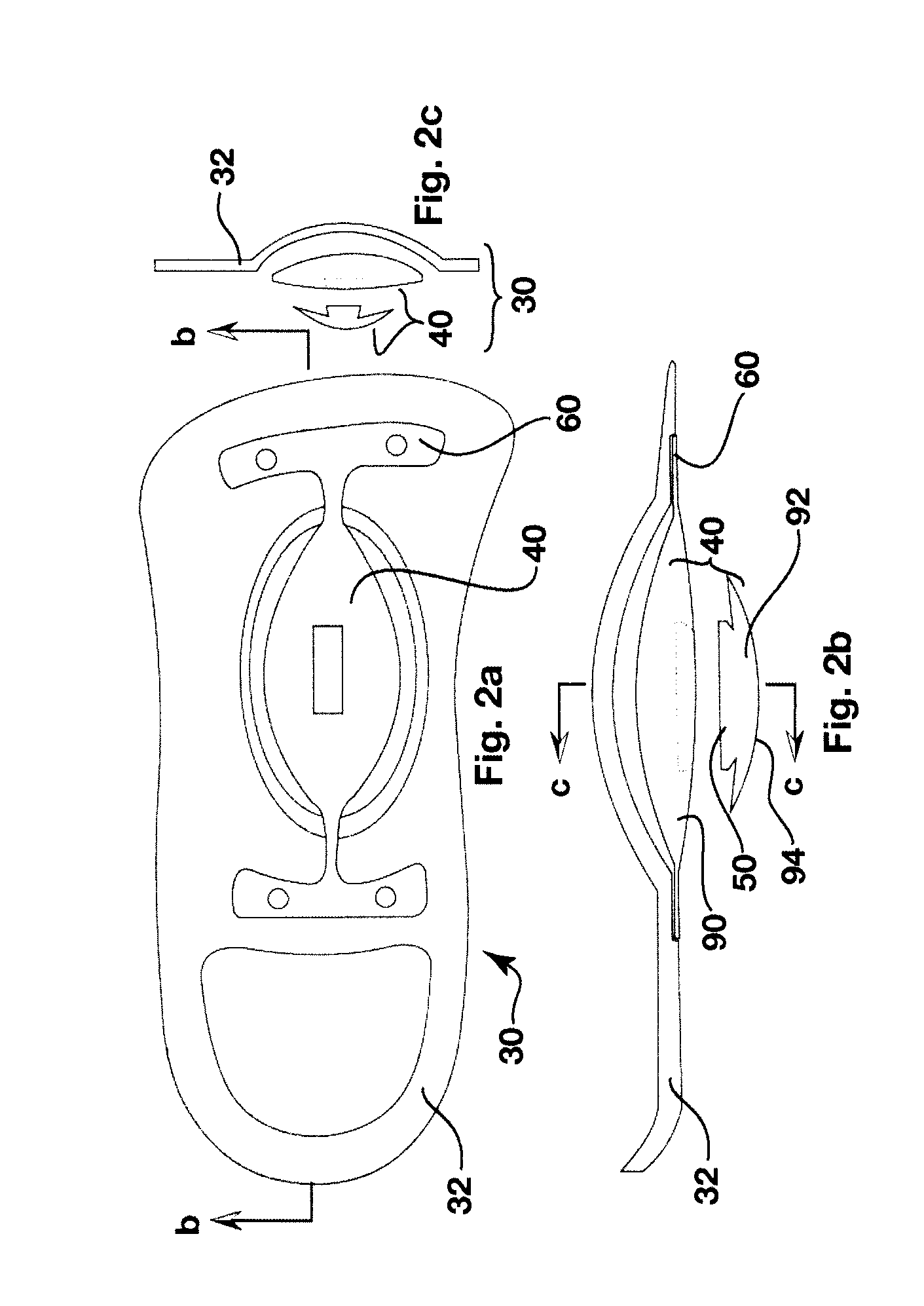Dynamic arch stabilization and rehabilitative shoe midsole/insole device
a technology of dynamic arch stabilization and shoe midsole, which is applied in the field of shoe midsole/insole device, can solve the problems of overly high arch height, affecting the comfort of users, and a large number of users who find the device too uncomfortable to use, so as to achieve the lowest degree of injury inducing stress, optimize the force management, and optimize the effect of muscular energy
- Summary
- Abstract
- Description
- Claims
- Application Information
AI Technical Summary
Benefits of technology
Problems solved by technology
Method used
Image
Examples
Embodiment Construction
[0091]A dynamic arch stabilization and rehabilitative insole device is generally illustrated by reference 30 in the Figures. The insole device 30 consists of a flexible insole body having an outer portion 32 defining an upwardly extending dome 34 located central to the foot's anatomical arch apex. The dome 34 receives interchangeable substantially ellipsoidal and spherically shaped catalysts 40 for interfacing with the plantar aspect of a human foot.
[0092]The catalysts 40 have an apex 42 on the dorsal surface for aligning with a target area within the foot, the target area being defined by the anatomical arch apex.
[0093]The plantar aspect (bottom) 44 of the catalysts, in concert with the flexible insole body encourage the catalysts to dynamically roll and pivot about their plantar apexes as they mirror the foot's movement through multidimensional activities.
[0094]The catalysts 40 are resiliently deformable to apply an upwardly directed pressure to stimulate the nocioreceptors and me...
PUM
 Login to View More
Login to View More Abstract
Description
Claims
Application Information
 Login to View More
Login to View More - R&D
- Intellectual Property
- Life Sciences
- Materials
- Tech Scout
- Unparalleled Data Quality
- Higher Quality Content
- 60% Fewer Hallucinations
Browse by: Latest US Patents, China's latest patents, Technical Efficacy Thesaurus, Application Domain, Technology Topic, Popular Technical Reports.
© 2025 PatSnap. All rights reserved.Legal|Privacy policy|Modern Slavery Act Transparency Statement|Sitemap|About US| Contact US: help@patsnap.com



